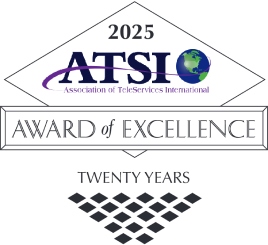The healthcare industry is evolving rapidly, with patient expectations and technological advancements playing significant roles in shaping future trends. In 2025, healthcare call centers will experience new challenges and opportunities.
From artificial intelligence to omnichannel communication, these trends are set to transform patient interactions, enhance operational efficiency, and improve overall care delivery.
Understanding these healthcare call center trends is critical for practices that want to stay ahead of the curve and maintain a competitive edge in patient care.
The Shift to Omnichannel Communication
As technology continues to advance, patients are increasingly expecting communication options beyond traditional phone calls. Healthcare call center trends in 2025 indicate that practices will need to adopt omnichannel communication. This approach integrates multiple communication channels such as email, text messages, live chat, and video conferencing, creating a seamless experience for patients.
An omnichannel system allows healthcare providers to communicate with patients on the platform they prefer, while also ensuring that all communication data is synchronized. This provides patients with a more personalized and convenient experience, improving satisfaction and engagement.
Medical call center services that utilize omnichannel communication help practices stay connected with patients at all times, improving accessibility and patient retention.
Increased Use of Artificial Intelligence and Automation
The adoption of artificial intelligence (AI) and automation is a growing trend across industries, and healthcare is no exception. AI can be used in medical call center settings to improve efficiency, handle routine inquiries, and provide 24/7 patient support. Automation tools like virtual assistants or chatbots can answer frequently asked questions, schedule appointments, or process basic requests, allowing staff to focus on more complex tasks.
AI-driven solutions can also help analyze patient interactions and provide real-time insights into call trends, sentiment, and urgency. This enables healthcare providers to better prioritize patient needs, reducing wait times and improving the patient experience. Additionally, AI can help automate administrative tasks such as data entry, increasing productivity and reducing human error.
Integration of Telehealth and Remote Care
Telehealth has seen an exponential rise in popularity over the past few years. By 2025, telemedicine will be fully integrated with healthcare call center operations. This trend will allow patients to schedule virtual appointments through the same platform they use for calls, texts, or emails, streamlining the process.
Medical call center services will need to support video calls, remote consultations, and follow-up care through telehealth platforms. This integration enables healthcare providers to offer more flexible care options, particularly for patients who cannot visit a clinic in person. It also improves access to healthcare for those in remote areas, making healthcare more convenient and accessible.
Voice Analytics for Improved Patient Experience
Voice analytics is one of the most promising healthcare call center trends to watch in 2025. This technology analyzes patient calls in real time, capturing tone, sentiment, and keywords to better understand patient concerns. By assessing vocal cues, voice analytics can identify emotional distress or urgency in a patient’s voice, allowing call center agents to prioritize calls that require immediate attention.
By implementing voice analytics, healthcare call centers can gain valuable insights into the quality of their interactions. It helps identify patient satisfaction, predict trends, and ensure that agents maintain the necessary level of care and empathy during conversations. As doctor answering services become more prevalent, voice analytics will be a valuable tool in enhancing the patient experience.
The Rise of Self-Service Options
Patients increasingly prefer to handle their healthcare needs independently, which is why self-service options are becoming an essential part of healthcare call center operations. In 2025, more medical call center services will offer self-service solutions such as appointment scheduling, prescription refills, and general inquiries through automated systems or online portals.
Self-service options provide convenience for patients while also reducing the strain on office staff. With fewer phone calls to manage, staff can focus on more critical tasks, leading to better productivity and patient care. Self-service is also beneficial for healthcare providers, as it helps lower costs and improves the overall efficiency of the practice.
Personalized Patient Engagement
As patients demand more personalized experiences, healthcare call centers are adopting new strategies to cater to these needs. In 2025, healthcare call center trends will emphasize personalized engagement based on patient history, preferences, and prior interactions. With access to a centralized patient record, agents can quickly address patient concerns and provide tailored advice.
Personalized communication can lead to stronger relationships with patients, fostering trust and loyalty. It can also improve appointment scheduling, reduce missed appointments, and increase patient satisfaction. Doctor answering services that incorporate personalized patient engagement will be better equipped to handle complex inquiries and deliver the care that patients expect.
Improved Data Security and Compliance
As the healthcare industry becomes increasingly digital, protecting patient data remains a top priority. In 2025, healthcare call centers will need to adopt more robust data security measures to meet the evolving requirements of HIPAA and other regulatory standards. This includes encrypting data, implementing secure authentication methods, and ensuring that all communication channels are compliant with privacy laws.
Medical call center services will play a critical role in safeguarding patient data by adhering to strict security protocols. These measures will help prevent data breaches, maintain patient trust, and avoid legal complications. Healthcare call centers that prioritize data security will stand out in a competitive market where patient confidentiality is paramount.
Integration of CRM Systems for Enhanced Service
Customer Relationship Management (CRM) systems are widely used in other industries, but they are now making their way into healthcare contact centers. By integrating CRM software with call center systems, healthcare providers can have a comprehensive view of each patient’s history, preferences, and past interactions.
In 2025, healthcare call centers will increasingly use CRM systems to improve patient care by streamlining communication, personalizing interactions, and managing patient relationships more effectively. This integration allows agents to access patient records instantly, ensuring that every conversation is informed and efficient. It also enables providers to identify patient needs proactively, improving patient retention and satisfaction.
Mobile Integration for Healthcare Access
With the growing dependence on smartphones, mobile integration is one of the healthcare call center trends to watch in 2025. Many patients now prefer to manage their healthcare needs through mobile apps, and healthcare call centers are adapting to these changes by providing mobile-friendly solutions.
Mobile apps allow patients to schedule appointments, receive reminders, access test results, and communicate with healthcare providers directly from their phones. This integration makes it easier for patients to engage with their healthcare providers on their terms, improving access and convenience. Healthcare call centers that integrate with mobile platforms will likely see increased patient satisfaction and improved engagement.
The Need for Multilingual Support
As the patient population becomes more diverse, the demand for multilingual support in healthcare contact centers is rising. In 2025, healthcare call centers will need to offer services in multiple languages to accommodate patients from different cultural and linguistic backgrounds.
Providing multilingual support is essential for ensuring that all patients have equal access to healthcare services. By offering translation services or multilingual agents, healthcare call centers can improve communication and reduce misunderstandings. This will enhance the patient experience, improve patient outcomes, and contribute to a more inclusive healthcare environment.
Proactive Communication and Follow-up
In 2025, healthcare call center trends will place more emphasis on proactive communication and follow-up with patients. Rather than waiting for patients to initiate contact, healthcare call centers will take the lead in reminding patients about upcoming appointments, procedures, or preventive care.
Proactive follow-up can help reduce no-shows, enhance patient engagement, and improve adherence to treatment plans. By initiating contact with patients to provide reminders or check on their well-being, healthcare providers can foster stronger relationships and improve overall care outcomes.
Adapting to Healthcare Call Center Trends for 2025
As healthcare organizations strive to keep up with the evolving demands of patients and technology, adapting to these healthcare call center trends is essential. For practices and healthcare providers looking to remain competitive, focusing on these trends can help deliver superior patient care, optimize call center operations, and enhance overall service quality. Below are ways healthcare providers can adapt to these emerging trends.
One of the most significant advancements in healthcare call centers is the transition to cloud-based solutions. Moving to the cloud enables healthcare organizations to scale services quickly, ensure remote access, and improve data security. The flexibility of cloud-based solutions allows practices to implement new features without the need for expensive infrastructure upgrades.
Cloud platforms also support omnichannel communication, making it easier to integrate voice, chat, video, and other channels into a single platform. This allows healthcare organizations to adapt to patients’ preferences for communication and ensure a more streamlined patient experience.
Get Ahead with MedConnectUSA’s Healthcare Call Center Solutions
At MedConnectUSA, we specialize in medical call center services that align with the latest healthcare call center trends. We offer doctor answering services and urologist answering services designed to meet the unique needs of healthcare providers. Our HIPAA-compliant services ensure that patient data remains secure while enhancing communication, accessibility, and patient satisfaction.
Adapting to these emerging trends in healthcare call center services is essential for your practice’s growth. MedConnectUSA is here to help streamline your communication processes, reduce administrative burdens, and improve patient care.
Contact us today to learn more about how we can help your practice stay ahead in 2025.





